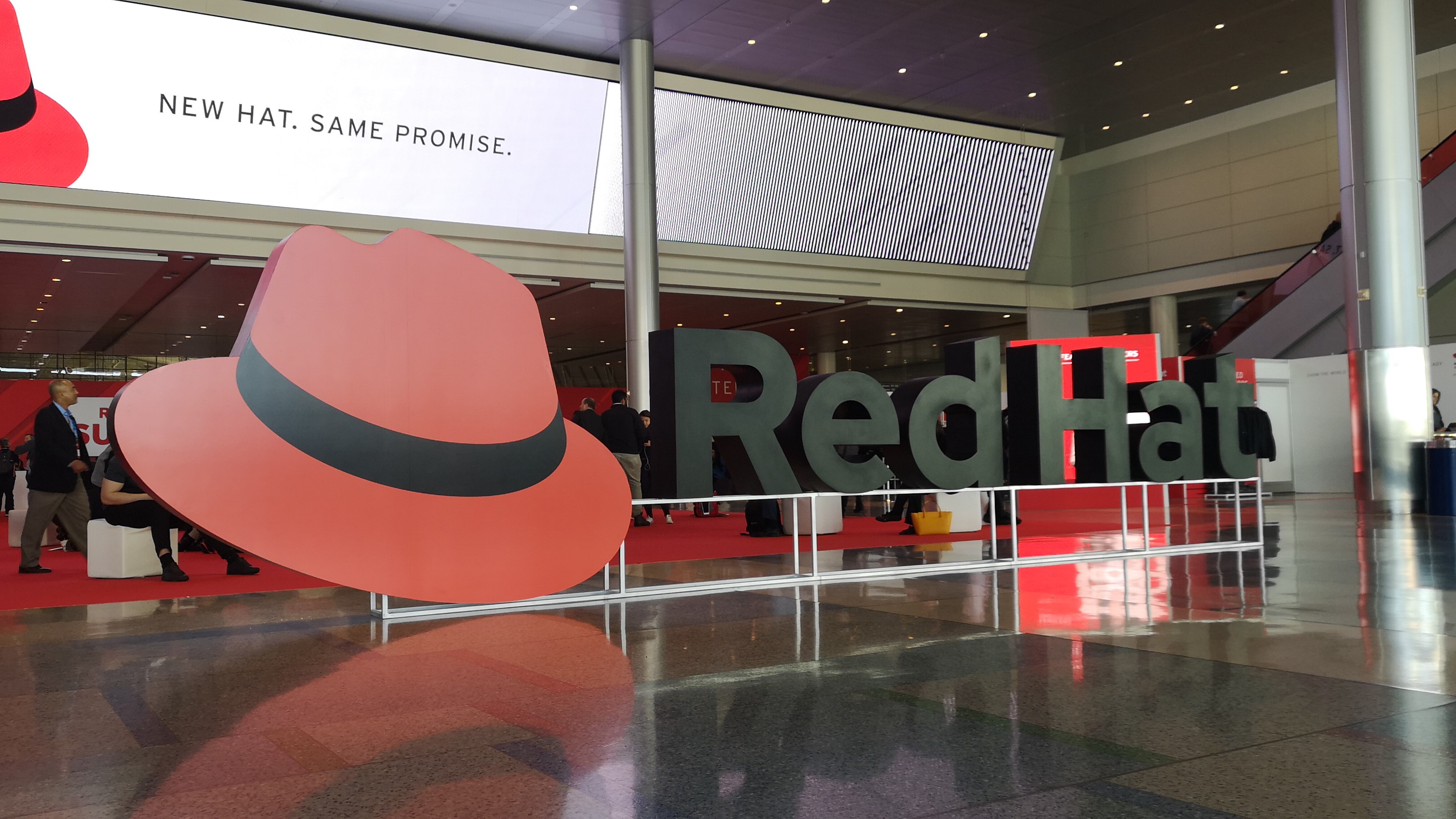Red Hat just made three big changes to its developer hub – here’s what you need to know
Updates to the Red Hat Developer Hub include one major change


Red Hat has unveiled a raft of upgrades for Red Hat Developer Hub (RDHD), including support for a local version as well as new analytics.
First announced in May 2023, Red Hat Developer Hub is the company's internal portal designed to help streamline the developer process.
Based on Backstage, an open source framework for building developer portals from the Cloud Native Computing Foundation, RHDH is the enterprise grade version designed to pull together curated tools and other resources into a single place.
The updated version, RHDH 1.5, is available immediately, though some of the additions remain developer previews.
The company said that organizations are prioritizing AI and edge applications, but noted these can be complicated and time consuming to develop. As a result, the firm is keen to push for wider adoption of internal developer portals, which can help streamline development and productivity.
"As organizations turn to intelligent applications to gain a competitive advantage, streamlining development processes and maximising productivity is imperative to getting these applications into production faster," said Balaji Sivasubramanian, senior director of developer tools at Red Hat.
"The latest features in Red Hat Developer Hub are designed to not only help organisations increase adoption and efficiency, but also allow for a more tailored portal, providing developers direct access to the tools, templates and components they need to drive innovation," Sivasubramanian added.
Get the ITPro daily newsletter
Sign up today and you will receive a free copy of our Future Focus 2025 report - the leading guidance on AI, cybersecurity and other IT challenges as per 700+ senior executives
So what can users expect from the new updates? Here’s everything you need to know.
Red Hat targets deeper dev insights
Red Hat noted that it's not always easy to understand how a developer portal is being used — if at all.
That's the motivation behind Adoption Insights, a new analytical dashboard plugin that shows how development teams make use of RDHD.
The dashboard tracks active users, total users, and portal searches, as well as the top catalog entities such as APIs, templates, documentation entries, and plugins.
Adoption Insights is available now as a developer preview with installation instructions here.
Red Hat Developer Hub Extensions Catalog
Another new feature in RHDH version 1.5 is a collection of plugins that have been verified by Red Hat or the community.
The RHDH Extensions Catalog features over 60 dynamic plugins, viewable through a streamlined interface, to offer greater control but also flexibility inside the portal.
Teams can manage plugins, including their own custom ones, at runtime, without rebuilding and redeploying the portal. Red Hat said this will help teams speed up the process to onboard new tools.
"No two organizations approach application development in the same manner and as such, they need access to tailored and curated tools and components that best meets the unique needs of their platform engineers," the company said in a statement.
RHDH Local
The third, major change to RHDH is a local development tool. Like the name suggests, RHDH Local lets platform engineers run a lightweight, self-contained version of RHDH on their own local machine to let them get to work faster and troubleshoot changes before deploying to a production system.
"With RHDH Local, users can work on templates, try out plugins, validate software catalogues and more, without having to install Red Hat Developer Hub on a Kubernetes cluster," the company said in a statement.
"Additionally, because it runs in a containerized environment, users can spin up RHDH Local in seconds and tear it down just as quickly."
Last year, Red Hat bundled RHDH together with Trusted Artifact Signer and Trusted Profile Analyzer to create Red Hat Trusted Application Pipeline, for security-focused development templates.
MORE FROM ITPRO
- Red Hat CEO: We’ll meet you at any stage of your AI journey
- The secret to Red Hat’s success: Trust, trust, and more trust
- Red Hat launches Build module in partner program refresh
Freelance journalist Nicole Kobie first started writing for ITPro in 2007, with bylines in New Scientist, Wired, PC Pro and many more.
Nicole the author of a book about the history of technology, The Long History of the Future.
-
 Google tells some remote workers to return to the office or risk losing jobs
Google tells some remote workers to return to the office or risk losing jobsNews Google has warned remote workers will need to return to the office or else lose their jobs, according to reports.
By Ross Kelly
-
 IBM puts on a brave face as US government cuts hit 15 contracts
IBM puts on a brave face as US government cuts hit 15 contractsNews Despite the cuts, IBM remains upbeat after promising quarterly results
By Nicole Kobie
-
 Red Hat launches Build module as part of partner program refresh
Red Hat launches Build module as part of partner program refreshNews Red Hat has announced new changes to its partner program, including the launch of a new 'Build' module and go-to-market support capabilities.
By Daniel Todd
-
 Red Hat eyes “clear pathways for collaboration” with new partner program updates
Red Hat eyes “clear pathways for collaboration” with new partner program updatesNews The enhanced framework for Red Hat partners features a new modular design and fresh incentives
By Daniel Todd
-
 Red Hat adds trio of new tools to its Trusted Software Supply Chain
Red Hat adds trio of new tools to its Trusted Software Supply ChainNews The open-source giant said the additions will help organizations tackle vulnerabilities in their supply chains earlier and improve overall resiliency
By Daniel Todd
-
 Linux Blue Screen of Death gives users a taste of the dreaded Windows feature
Linux Blue Screen of Death gives users a taste of the dreaded Windows featureNews The Linux Blue Screen of Death has been added in a recent update
By Ross Kelly
-
 Red Hat Enterprise Linux becomes foundational operating system for Cohesity Data Cloud
Red Hat Enterprise Linux becomes foundational operating system for Cohesity Data CloudNews New strategic partnership between Red Hat and Cohesity aims to drive innovation in the data security and management space
By Daniel Todd
-
 Can the Open Enterprise Linux Association overcome Red Hat’s restrictions?
Can the Open Enterprise Linux Association overcome Red Hat’s restrictions?Analysis Defining how compatibility will be achieved is the crucial question in the Red Hat Enterprise Linux saga
By Richard Speed
-
 AlmaLinux follows Oracle in ditching RHEL compatibility
AlmaLinux follows Oracle in ditching RHEL compatibilityNews Application binary compatibility is now the aim with 1:1 now dropped
By Richard Speed
-
 Can Oracle really be Linux's knight in shining armor?
Can Oracle really be Linux's knight in shining armor?Opinion The self-proclaimed champion of open source freedom would like you to forget about its history
By Richard Speed